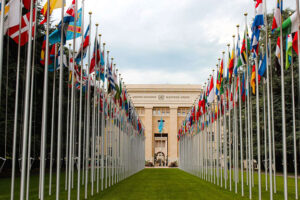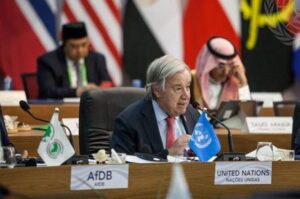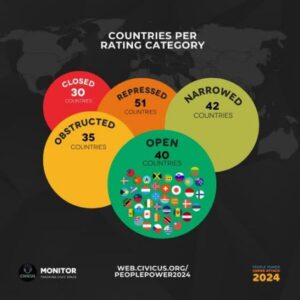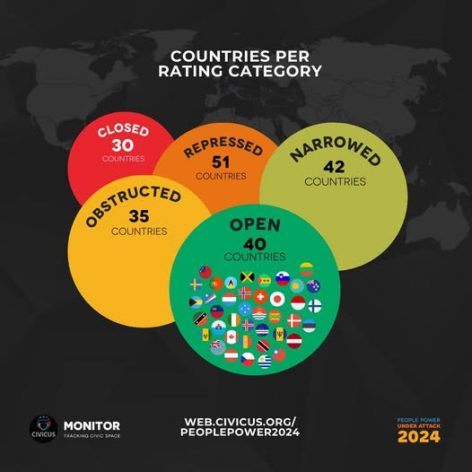
Civil Society, Democracy, Featured, Global, Global Governance, Headlines, Human Rights, Indigenous Rights, IPS UN: Inside the Glasshouse, TerraViva United Nations

Credit: United Nations
– The UN’s human rights agenda is in danger of faltering since the Geneva-based Office of the High Commissioner for Human Rights (UNHCHR) is planning to “restructure” the office, under the moniker OHCHR 2.0.
But this proposal, if implemented, would result in the abolition of the Special Procedures Branch, established by the Human Rights Council (HRC), to report and advise on human rights from thematic and country-specific perspectives.
The question remains whether or not the HRC will give its blessings to the proposed restructuring. Currently, there are more than 46 thematic mandates and 14 country-specific mandates.
The Special Rapporteurs (who are also designated “independent UN human rights experts”) cover a wide range of thematic issues, including investigations into extrajudicial, summary or arbitrary executions, racism and xenophobia, human rights in the Palestinian territories, right to freedom of opinion and expression, rights of the indigenous peoples, violence against women, human rights of immigrants, among others.
Ian Richards, an economist at the Geneva-based UN Conference on Trade and Development (UNCTAD) and former President of the Coordinating Committee of International Staff Unions and Associations, told IPS the staff of the Special Procedures Branch play an essential role in supporting the work of the special rapporteurs.
He said former UN Secretary-General Kofi Annan described their work as the jewel in the crown of the UN human rights system.
“We know that some of their recent work has created pushback. There is a belief is that they are being penalized for this”.
“The High Commissioner for Human Rights “hasn’t accepted to meet with the staff union to discuss this, which is unusual. We hope he will change his mind,” said Richards.
Some of the Special Rapporteurs have been vociferously critical of member states, including Israel, on war crimes charges in Gaza, and also countries in the Middle East and South-east Asia, like Singapore and Saudi Arabia, for continuing to enforce the death penalty.
In a press release last week, two Special Rapporteurs said Singapore must urgently halt the execution of Malaysian national Pannir Selvam Pranthaman for drug trafficking.
“We have repeatedly** called on Singapore to halt executions for drug offences which are illegal under international human rights law on several grounds,” the experts said.
“We reiterate that under international law, only crimes of extreme gravity involving intentional killing meet the threshold for the death penalty,” the experts said. “Mandatory death sentences are inherently over-inclusive and inevitably violate human rights law.”
“There is no evidence that the death penalty does more than any other punishment to curb or prevent drug trafficking,” they said.
The experts warned that the rate of execution notices for drug-related offences in Singapore was “highly alarming”. They noted that eight people have already been executed on these charges since 1 October 2024, a period of just four and a half months.
Speaking off-the-record, a UN source told IPS the staff of the Special Procedures Branch fear the “re-structuring” is being done in order to reduce the effectiveness and voice of the Special Rapporteurs. And the High Commissioner’s refusal to consult with the union may be evidence of this, he said.
“As you may be aware, the special rapporteurs, and one in particular, have been vocal on the issue of Gaza, which has generated complaints from a number of member states to the High Commissioner. To seek a second term, he needs their support”.
According to the UN, Special Rapporteurs/Independent Experts/Working Groups are independent human rights experts appointed by the United Nations Human Rights Council. Together, these experts are referred to as the Special Procedures of the Human Rights Council.
Special Procedures experts work on a voluntary basis; they are not UN staff and do not receive a salary for their work. While the UN Human Rights office acts as the secretariat for Special Procedures, the experts serve in their individual capacity and are independent from any government or organization, including OHCHR and the UN.
Any views or opinions presented are solely those of the author(s) and do not necessarily represent those of the UN or OHCHR. Country-specific observations and recommendations by the UN human rights mechanisms, including the special procedures, the treaty bodies and the Universal Periodic Review, can be found on the Universal Human Rights Index https://uhri.ohchr.org/en/
The Office of the High Commissioner is being funded by the UN regular budget and voluntary contributions.
But UN Special Rapporteurs are not paid a salary by the United Nations. They receive funding primarily through logistical and personnel support from the Office of the High Commissioner.
They often also receive additional funding from private foundations and NGOs like the Ford Foundation and Open Society Foundations, which can raise concerns about potential conflicts of interest due to the source of funding.
Special procedures cover all human rights: civil, cultural, economic, political and social as well as issues relating to specific groups. Special procedures mandate-holders are either an individual (called a Special Rapporteur (SR) or Independent Expert (IE)) or a Working Group (WG) of five members, according to the UN.
As part of their mandates, special procedures examine, advise and publicly report on human rights issues and situations. They conduct thematic studies and convene expert consultations, contribute to the development of international human rights standards, engage in advocacy and provide advice for technical cooperation.
Upon the invitation from Governments, they visit particular countries or territories in order to monitor the situation on the ground. Special procedures also act on individual cases and concerns of a broader, structural nature by sending communications to States and other entities in which they bring alleged violations or abuses to their attention.
Finally, they raise public awareness of a specific topic through press releases or other public statements. Special procedures report annually to the Human Rights Council; the majority of the mandates also report annually to the General Assembly
In 2024, OHCHR received a total of US$268.9 million in voluntary contributions. As in previous years, the overwhelming majority of voluntary contributions came from Member States and International organizations including the European Commission and UN partners.
IPS UN Bureau Report












